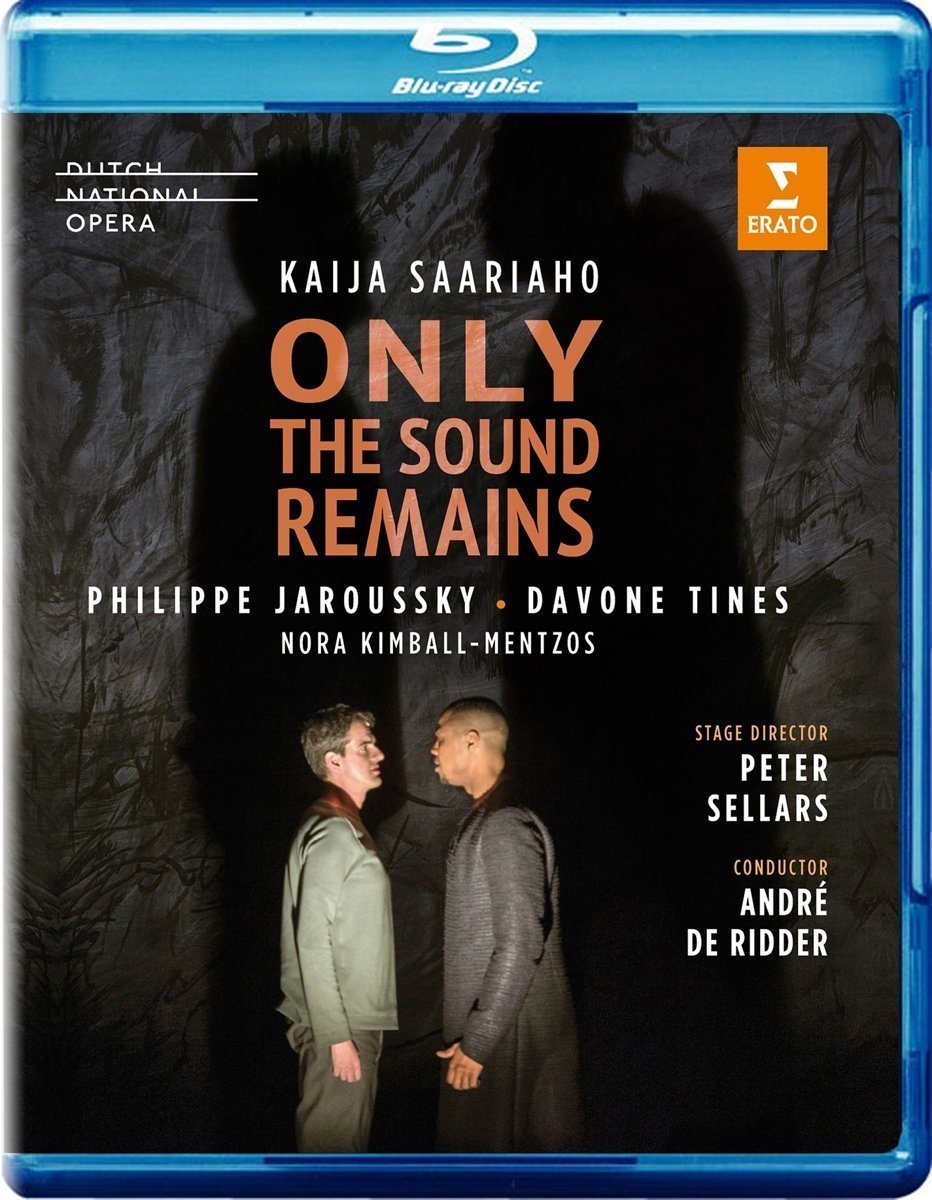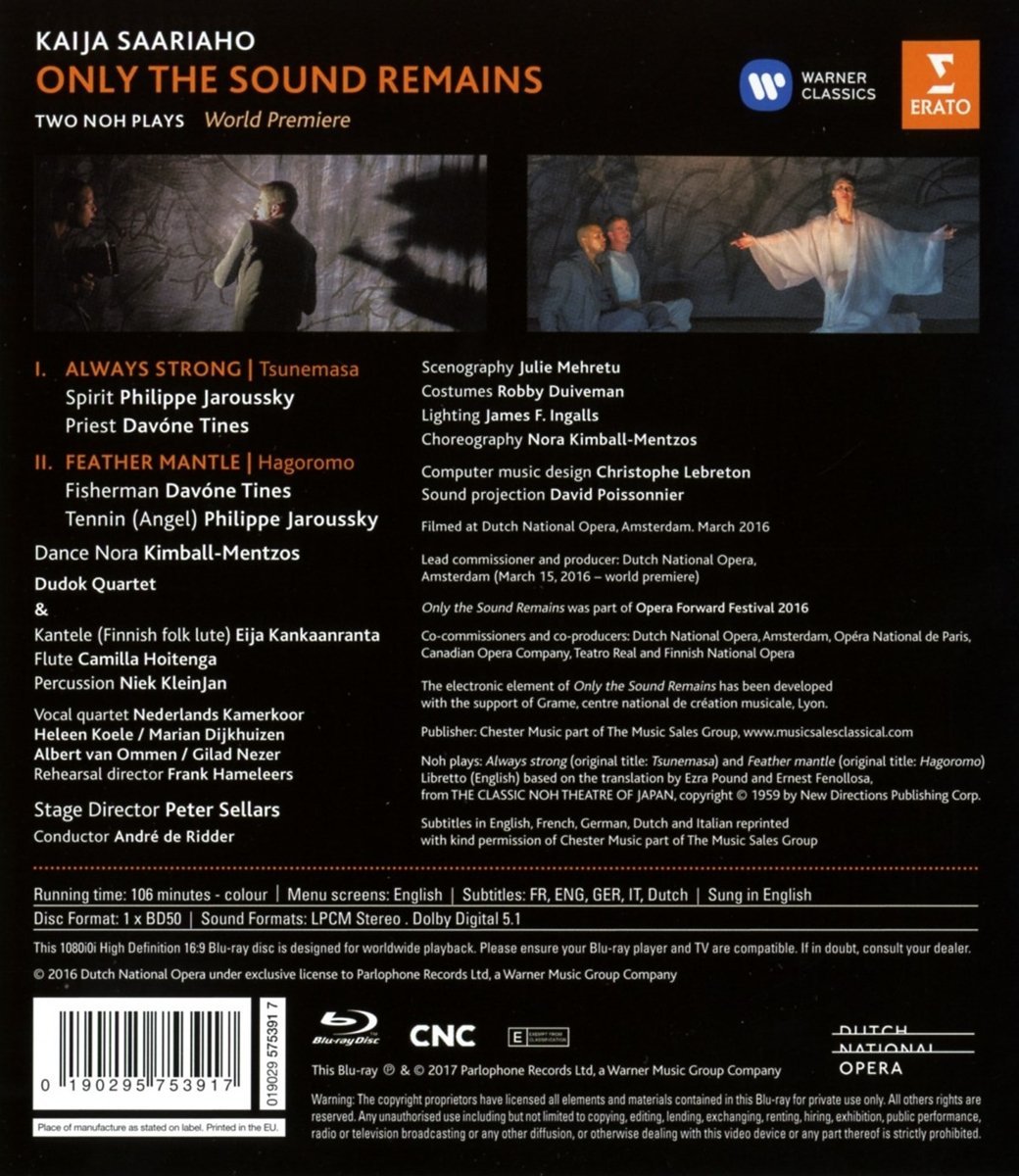

Kaija Saariaho Only the Sound Remains double-bill opera. The two operas are Always Strong and Feather Mantle, both based on traditional Noh plays from Japan, with Saariaho contributing the libretto and music for each. Directed 2016 by Peter Sellars at the Dutch National Opera. Stars Philippe Jaroussky (Ghost/Angel) and Davóne Tines (Priest/Fisherman). Also stars dancer Nora Kimball-Mentzos. André De Ridder conducts the Dudok Kwartet (string quartet) and four singers from the Dutch Chamber Choir. Scenography by Julie Mehretu; costumes by Robby Duiveman; lighting by James F. Ingalls; choreography by Nora Kimball-Mentzos; computer music design by Christophe Lebreton; and sound projection by David Poissonnier. Sung in English. Released 2017, disc has 5.1 Dolby Digital sound. Grade: NA
Neither the stories nor the music here appear to owe much to the Western canon. Saariado apparently trucks with the ethereal, not the dramatic. Andrew Mellor, writing in the January 2018 Gramophone at page 92 says "this [recording] bored me rigid." In the April 2018 Opera News, Joe Cadagin says, "Contrary to the title, Saariaho's music tends to dissipate like perfume, leaning no lasting impression." With comments as harsh as these, you can be sure that others find the music mesmerizingly beautiful.
Since not many Westerners are familiar with Noh, here is a synopsis for each opera:
Always Strong
Sodzu Gyokei, a priest serving at the temple of the royal court, is praying for Tsunemasa, who died in the battle of the Western Seas. Tsunemasa was a favourite of the Emperor, who had given him a lute named Seizan (Blue Mountain). Gyokei now offers the instrument at the altar of the deceased, performing a service for the salvation of his soul. While the prayers and music for Tsunemasa to become a Buddha resonate, the faint shadow of a man appears. Gyokei asks who it is, and the shadow replies that he is the ghost of Tsunemasa, lured there by the sound of the prayers. Then the shadow vanishes and only the sound of his voice remains, telling the priest how it misses the old days. This happy moment, however, is short-lived. Tsunemasa’s ghost is tormented by visions of the battle in which he fought. He wants the lights to be extinguished and disappears.
Feather Mantle
One spring morning, as the fisherman Hakuryo sets out to go fishing with his companions, he finds a beautiful feather robe hanging on a pine branch. When he plans to take it home, a Tennin (angel) appears and asks him to return the robe to her. At first Hakuryo refuses. But he is moved by the angel’s lament that she cannot go back to heaven without it. He will give her the robe in return for seeing her perform a celestial dance. When the fisherman again expresses distrust, she responds: ‘Doubt is for mortals; with us there is no deceit.’ The Tennin dances in the feather robe; one of the dances represents the waxing and waning of the moon. Eventually she disappears in the haze beyond the peak of Mount Fuji.
And here is a trailer:
OR
